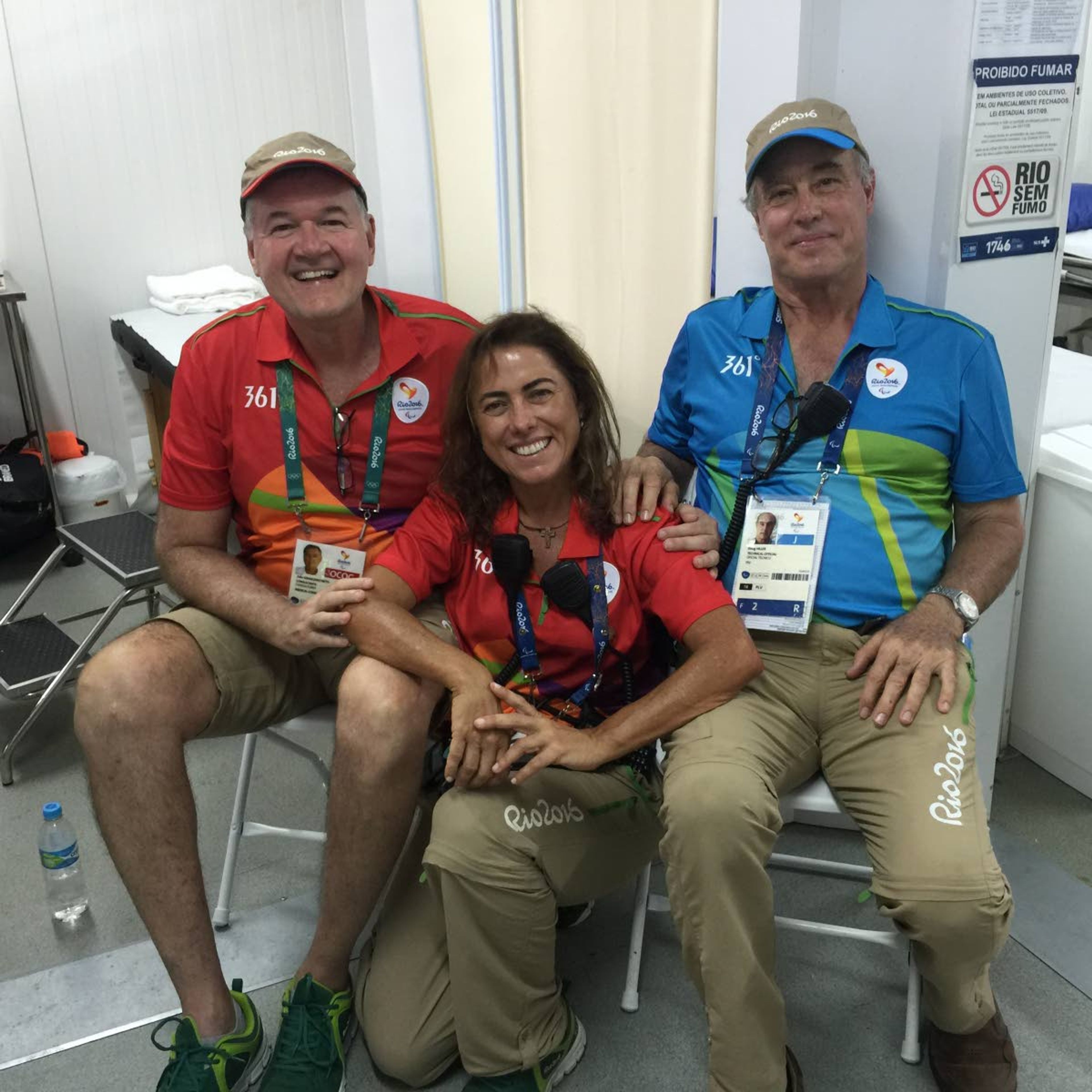Another ‘tri’ in Tokyo
Doug Hiller, an orthopedic surgeon in Colfax and member of World Triathlon Hall of Fame, will serve as medical official in his fifth Olympic/Paralympic Games
An orthopedic surgeon at Whitman Hospital and Medical Clinics in Colfax has served as a medical official for three Olympic Games and one Paralympic Games.
Dr. Doug Hiller, 71, of Pullman, will add a fifth Olympics/Paralympics appearance to his resume next month when he travels to Tokyo as medical delegate for the triathlons at the Paralympics.
Hiller said each Paralympics sport has one doctor, or medical delegate, that oversees race-day medical care.
“It is a huge honor,” Hiller said.
He served as medical delegate of the Paralympic triathlons in 2016 in Rio de Janeiro. Hiller was a medical official in the 2000, 2004 and 2008 Olympics, including a medical delegate for the triathlons in 2004 and 2008.
He said he has served in a medical capacity in more than 100 triathlons the past 36 years, including the Olympics/Paralympics and various world championships. Hiller has also competed in 10 to 12 triathlons and was inducted into the World Triathlon Hall of Fame two years ago.
He said he is thrilled at his newest opportunity and is looking forward to the races.
Hiller called para-athletes incredible because of their capacity to overcome their disabilities. For example, he said one athlete got her leg blown off while serving in Iraq and she became a champion triathlete.
“They are awesome champions,” Hiller said.
Because of the COVID-19 pandemic, he said this year’s games will be quite different. Hiller, who said he is vaccinated, and other Paralympics officials will undergo several COVID-19 tests in Tokyo and will essentially be sequestered at their hotels.
In years past, Hiller said he had conversations with athletes and coaches, dined at restaurants and interacted with other officials he has befriended over the years. But those interactions will be limited this year.
“It’ll be an interesting vacation,” he said. “Usually, it’s this huge amazing sports fair.”
Hiller said he will depart for Tokyo on Aug. 22 and prepare for the races, which are Aug. 28 and 29. He said he will not treat athletes’ injuries since each nation has its own doctors. Instead, his job is to make sure race-day medical care operations go smoothly.
Hiller said his research of exercise physiology of triathletes started in the 1980s and continues today.
Hiller said his only job at the start was research and training for triathlons, “which was a pretty good deal.” He said he was “consumed” by exercise physiology, or the body’s responses to physical activities.
“This is really unknown,” he said, referring to medical and scientific research of triathletes in the 1980s. “Nobody has really looked at this.”
Hiller, who is also a clinical professor at the Elson S. Floyd College of Medicine at Washington State University, said he helped start the Global Triathlon Safety Database, which can be found at globaltrisafety.org/. Its goal is to ensure triathletes’ safety and care in training and competition in part by tracking and studying injuries and on rare occasions, deaths, of triathletes.
Hiller has practiced at Whitman Hospital and Medical Clinics for four years.
Cabeza can be reached at (208) 883-4631, or by email to gcabeza@dnews.com.











